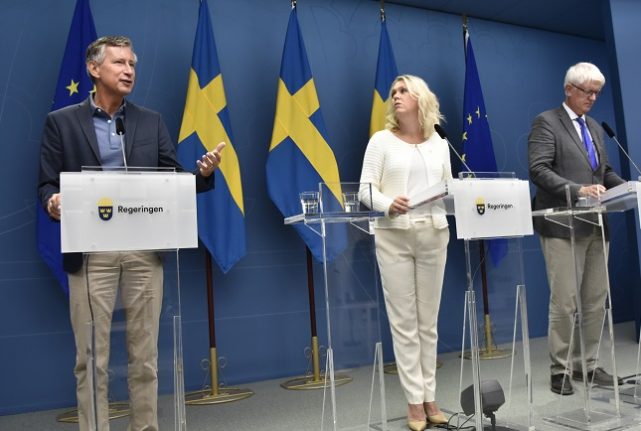The vaccinations could begin as early as the first quarter of 2021, Sweden's vaccine coordinator Richard Bergström said on Monday.
Sweden has signed a deal to buy millions of doses of Astra Zeneca's vaccine for next year, and has deals in the works for six other vaccines. At the moment no vaccine is ready to be used by the general public and it's unknown which vaccine will be ready first, how effective each one will be, and how many doses would be needed per person.
“We have bought more than we need, but that's a good problem to have. We will be able to sell to other countries,” Bergström said.
Which groups are prioritised in the vaccine would depend on the type of any vaccine, and how and when it can be carried out in Sweden.
“But those who will be prioritised are people aged over 70 and others with underlying symptoms. Staff in the medical and care sectors will also be included,” the Public Health Agency's general director Johan Carlson said.
“Our assessment is that children do not need the vaccine in the first instance – that goes for healthy children without underlying illnesses. Quite simply, it's about creating protection around the people who have extra need of protection.”
It's still unclear exactly how this would work – for example, what proof people in risk groups may need to show, or how long individuals may have to wait for their vaccine.
Carlson noted: “A vaccine alone cannot stop a pandemic. My message is very clear that the preventative measures we have must remain.”
“I think we should reckon with several years where we have to deal with this. It doesn't have to mean very restrictive measures, but it is wrong to thing that this will be gone next summer because we will have a vaccine then.”



 Please whitelist us to continue reading.
Please whitelist us to continue reading.
Member comments